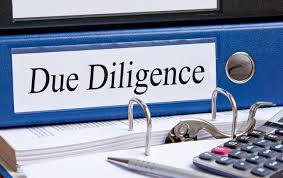Focusing on Due Diligence (Part II of IV)
 He that can have patience can have what he will. – Benjamin Franklin
He that can have patience can have what he will. – Benjamin Franklin
Putting together an effective due diligence system requires patience. I freely admit that I am not a patient person, especially when it comes to ensuring ethics and compliance. By definition, however, effective compliance strategies require patience due to the scope and scale of the changes being implemented across a company.
Due diligence is usually a high priority to a company seeking to implement an effective anti-corruption compliance program. As an important initial task, a CCO has to recognize the importance of avoiding failure, not necessarily ensuring success. For that reason, a CCO has to demonstrate patience when building a new due diligence system.
Assuming that a CCO has enlisted the support of the CEO and related senior corporate leaders who have a stake in an effective due diligence system, the CCO has to carry a banner message to all of the important constituents – a message that explains the need for due diligence and the importance of compliance with new due diligence policies and procedures.
A CCO who takes the time to present the due diligence message is likely to get greater cooperation and access to important information needed to implement a due diligence system. As part of this message, the CCO has to reassure interested parties that the company is not seeking to terminate the use of third parties but is attempting to develop documented controls that will protect the company and the responsible individuals from potential legal harm. Additionally, if possible, the CCO should reassure the business side of the company that they will benefit from greater information and understanding regarding the entities with which they are conducting business in the global marketplace.
It is only with the groundwork set forth above in this posting and yesterday’s posting that the CCO can begin the important first task of collecting information to develop a universe of third party relationships.
The number and type of third parties includes: (1) business agents for marketing; (2) agents who assist in securing regulatory approvals or tax resolutions; (3) distributors and resellers; (4) professionals (e.g. lawyers, consultants, accountants); (5) customs brokers and representatives; (6) vendors and suppliers; and (7) nominees and power of attorney representatives.
This list may not be exhaustive but will usually capture the scope and scale of the third parties relied on by a company.
Depending on the industry and the maturity and extent of a company’s sales operations, a company may rely extensively on third party agents to enter new markets and increase global sales in emerging markets. As a company’s business in a new market increases, companies are often more willing to invest and build a sales infrastructure in the new market, relying on its  own staff to conduct the bulk of the sales in the country or region.
own staff to conduct the bulk of the sales in the country or region.
A CCO has to organize the third parties according to various factors, including: (1) the country or region of operation; (2) the length of the company’s relationship with the third party; (3) the amount of money paid annually to the third party; (4) the existence of a written contract with the third party; and (5) the rationale of the use of the third party and the importance of the third party to the company.
All of these factors will be important to assessing the third parties, and prioritizing application of due diligence principles to the third party.
















Interesting..